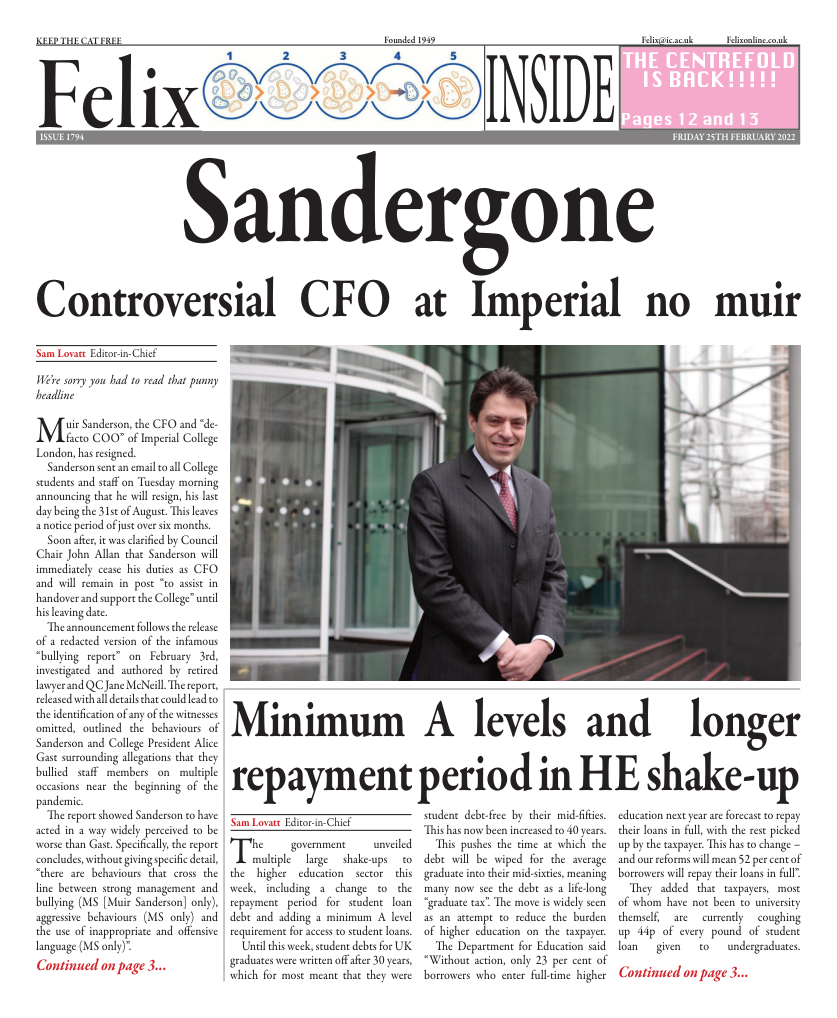Living through the apocalypse —a warning from the sky?
After weathering three storms it is time to tally up the damages.
After weathering three storms it is time to tally up the damages. At the time of writing, three lives have been lost and 114,000 homes have faced disruptions to electricity and even water supplies in the middle of winter. The Met Office has issued a red alert to warn of the severity of the expectant winds. Now, record-breaking winds of 122mph have been reported and the strong gusts have uprooted, broken and destroyed millions of trees, vital carbon sinks for our planet. The storms have also resulted in major damage to many buildings, including the roof of London’s beloved O2 arena, and disruptions along travel networks, including flooded roads at the height of Storm Franklin.
Scientists agree that global warming could worsen the outcomes from such climatic events. As sea levels rise, coastal storm surges can become more common and increase risks of flooding. Flooding risks could be further worsened by predictions of elevated rainfall during the winter season. Another major cause for concern, according to the Center for Climate and Energy Solutions, is rising sea surface temperatures as a
result of Earth’s warming climate. Surging sea surface temperatures may heighten wind speeds of storms, resulting in more damages to nature and property. Furthermore, rising temperatures have been linked to increased precipitation from cyclones, providing further basis for increased flooding risks.
Are we prepared to mitigate these risks? An Unearthed investigation published in 2021 suggests not. The investigation shows that assessments carried out by Environmental Agency inspectors have found more than 1,000 of England’s privately-owned flood defences are classified as either “poor” or “very poor” condition. Furthermore, data from these reports distinguish areas that face disproportionately high flood risks as “high-consequence areas” and management of such areas by private companies was twice as likely to result in poor management relative to cases where such areas were managed by the Environment Agency. Put simply, these private companies are placing vulnerable communities at greater risks of flooding by not enacting adequate measures to mitigate these risks.
As a result of the investigation, Olivia Blake MP, then Labour Shadow Minister for Nature, Water and Flooding, had responded, “as our winters get wetter, the climate emergency will put flood defences under greater strain. The government must act to ensure there are clear responsibilities and adequate measures in place so that any flood defences which are privately owned and critically important to the protection of the public are properly inspected and maintained”. Yet these words ring hollow as the investigation reveals a slew of cases where poor management has resulted in misjudgement of risk and no correction to management measures.
While they are frightening, and their effects long-lasting and devastating, storms like the ones we recently witnessed are a rare once-in-a-decade events. The shifts in the UK’s climate, however, are here to stay and likely to increase the risks posed by such storms. Perhaps this event should therefore serve as a warning to better equip our cities before it becomes too late.









